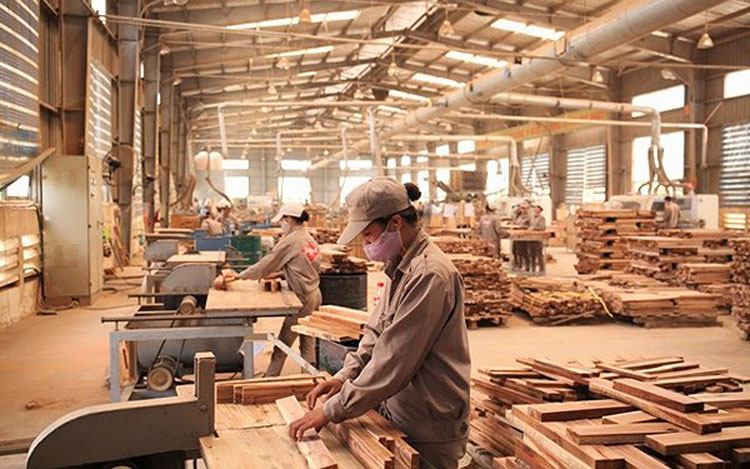Wooden furniture manufacturers have been warned that they will face more trade barriers as export markets have applied new policies to restrict imports.

The recently released report of the Vietnam Timber and Forest Product (Viforest) warned of big changes in all four major export markets of Vietnam, including the US, China, Japan and South Korea.
Regarding the US market, the Trump Administration is pursuing a policy to reduce the trade deficit and protect domestic production. The policy has had a direct impact on China, which has the biggest trade surplus with the US.
Experts also warned that the excess of Vietnam’s exports to the US over imports from the US, estimated at $32 billion a year, doubled with Chinese investment flow into the wooden furniture manufacturing may ‘attract special attention from the US management agencies’.
Therefore, wooden furniture manufacturers and Vietnamese management agencies have been told to make reasonable preparations to minimize changes in exports to the US.
|
The excess of Vietnam’s exports to the US over imports from the US, estimated at $32 billion a year, doubled with Chinese investment flow into the wooden furniture manufacturing may ‘attract special attention from the US management agencies’. |
As for China, this is an ‘open’ market for Vietnam’s woodwork products. Vietnam is now witnessing a trade surplus of $600 million with the market. However, most of Vietnam’s export items to the market are raw materials.
Meanwhile, sources said China is considering applying a policy to manage the authenticity of the wood materials used.
The Japanese government, after enacting the Clean Wood Act in May 2018, plans to issue documents to guide the implementation of the law. South Korea’s Act on the Sustainable Use of Timbers took effect in March 2018.
Analysts commented that the acts show the governments’ measures to tighten wooden imports. And this will have negative impact on Vietnam, a big woodwork exporter.
Meanwhile, Hoang Thanh from the Delegation of the European Union to Vietnam said VPA/FLEGT is now under review. Once the agreement takes effect, it will influence Vietnam’s exports to the EU market.
Thanh said Vietnamese enterprises face a lack of information about the agreement, which includes complex provisions related to many management agencies and laws.
Most Vietnamese wooden furniture enterprises don’t have direct contact with European importers. In many cases, Vietnamese enterprises don’t export products directly to Europe, but through intermediaries.
Therefore, the requirements on timber sources and forestry from Europe cannot reach Vietnamese enterprises, especially small companies.
Vietnam has many craft villages that make woodwork, but enterprises in the villages mostly have small scale operation.
The enterprises have difficulties satisfying the EU’s requirements. Though Vifores has helped them improve production chains, there is still no optimal solution to help enterprises access the EU market.
VietNamNet Bridge
Related News
- HawaExpo hopes to help wood processing industry regain growth momentum
- 2024 remains challenging for wood sector: experts
- Wooden products begin to get export orders again after lull
- Wood exports to U.S. decline due to inflation
- SMEs near breaking point: report
- Wood exports to US & EU still struggling
- Vietnamese wood exporters grapple with waning demand
- Artisan communities strive for legal wood

 Tiếng Việt
Tiếng Việt




